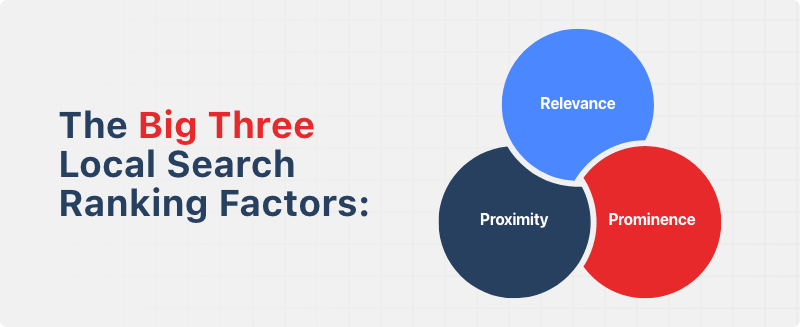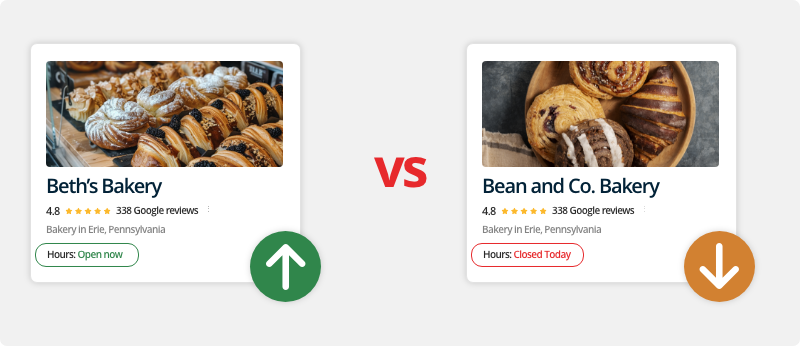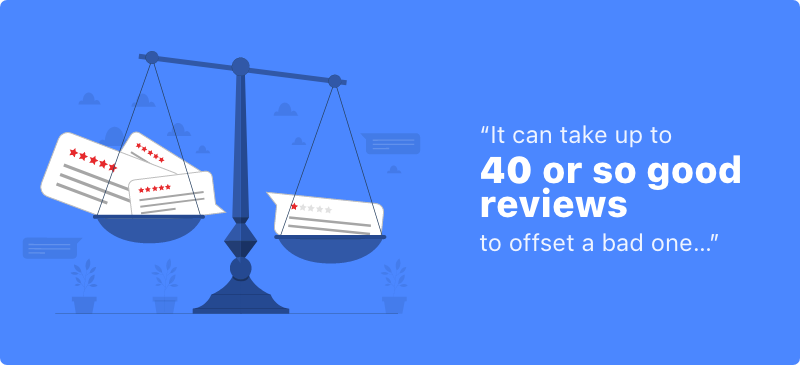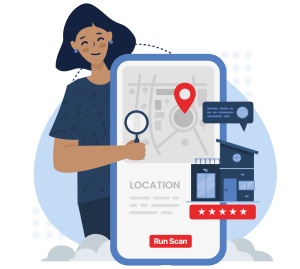If you want to rank higher in Google Maps and local search results, you need to understand local SEO ranking factors. While Google keeps its exact algorithm secret, we know the "Big Three" factors, relevance, proximity, and prominence, play the biggest role.
While Google keeps its exact algorithm secret, we do know the three core elements it relies on: relevance, proximity, and prominence. These "Big Three" factors determine which businesses show up in the local pack, how visible you are across different areas, and ultimately how many nearby customers find and choose you.

The Big Three Local Search Ranking Factors:
- Relevance
- Proximity
- Prominence
Relevance
Google's main goal for local searches is to show users a curated selection of businesses that are most relevant to the keywords, or search terms, that they enter into Google Search or Google Maps.
In order to do this, the search engine's algorithm looks at several different signals to determine how relevant each potential result is to a user's query and how closely it aligns with their search intent (what they're actually looking for).
The most important local search ranking factors that help Google determine a business's relevance to a search come from its Google Business Profile (GBP) information, including the business name and categories.
If a business's name contains keywords that people are searching for, or if someone searches using the exact business name, Google is more likely to rank that business highly in search results.
It's important to note that this does not mean you should add keywords to your business name on Google Business Profile just for the sake of ranking in more local searches, as keyword stuffing goes against Google's guidelines for representing your business and can result in a GBP violation and suspension.
However, if a business's real name contains certain keywords, it can help it appear in searches for those terms (think businesses with generic names like "Joe's Barber Shop" or "The Burger Shack" showing up in searches for barber shops or hamburger restaurants).
Even more important than a business's name for determining relevance are its Google Business Profile categories. Google looks at all of a business's categories (one primary and up to nine secondaries) when deciding how relevant it is to any given search, which is why selecting the right GBP categories is so important.
For example, if someone searches for something like, "Asian restaurant near me," Google will show them a selection of nearby restaurants with categories like "Asian Restaurant," "Asian Fusion Restaurant," "Pan-Asian Restaurant," "South Asian Restaurant," "Southeast Asian Restaurant," "Chinese Restaurant," "Japanese Restaurant," etc.
On the other hand, if a user searches for a "nearby Japanese restaurant," Google will prioritize showing them restaurants with highly relevant categories selected, like "Japanese Restaurant," "Authentic Japanese," "Japanese Curry Restaurant," and "Japanese Hot Pot Restaurant."
Another relevance signal that people are still catching on to is a business's hours. Businesses that are open when a user performs a search are more likely to show up in it, and will tend to rank higher in that search compared to those that are closed.
In some cases, businesses' rankings can drop off altogether when they're closed, which is why it's important to test for "openness" as a local ranking factor.
While it's never a good idea to list false hours in an attempt to rank better, some businesses have had success in updating their actual hours of operation to compete more effectively in their respective local markets.

Proximity
The next major local SEO ranking factor is proximity, or how close a business is to any given local search. After all, it wouldn't be called "local search" if location wasn't a factor.
There are a couple of different reasons why Google might decide to show a business in search results based on different types of proximity.
The first reason is that the business is physically nearby when a user performs a relevant search on Google.
For instance, if someone enters the term "coffee shop near me" into the Google Maps application on their phone, Google will show them all the nearby businesses it thinks are relevant and within a reasonable distance of the user.
How many businesses appear and how far away they are from the searcher for these types of "near me" search results can vary depending on the specific area, how densely populated it is, and how convenient transportation/navigation is.
For instance, in heavily populated urban areas, Google will prioritize ranking businesses that are very close to the searcher, as people are not usually willing to go far away to get to a business in a big city. In rural areas, Google might show more businesses further away, since people are more likely to drive greater distances to get to a business in a less populated area.
In general, the closer a user is to a business when they search for it, the higher that business is likely to rank in the results they see.
Any business's physical location (or center of their service area) is the spot where it will rank the highest, with rankings slowly decreasing the further you get away from the business in a radius around its location. How quickly/close to a business's location these rankings start to drop off depends on a variety of other factors, like the population, search volume, and competition in the area.
Another way Google uses a business's proximity to determine its local search ranking is by evaluating its distance from the center point of a specific area mentioned in a search. This local search ranking factor is important when users search for businesses using geo-modified keywords, or keywords that contain a place name or other geographic identifier.
For example, let's say someone who lives in Seattle is planning a trip to New York, and they search for "hotels near Central Park NY." Google would then show them search results for hotel businesses in close proximity to a predefined center point on the map for Central Park in New York City.
Prominence
Prominence refers to how well-known and reputable a business is. For local search rankings, Google relies heavily on a business's Google Reviews to evaluate its prominence.
Businesses with a high volume of Google Reviews and a strong average review score are more likely to rank highly in local search results, whereas businesses with less reviews and a lower overall review score tend to rank lower.
Google also looks at other factors related to reviews, such as review frequency and recency, to help it determine rankings, giving more weight to newer reviews when evaluating a business's prominence.
This is why it's so important for local businesses to focus on continuously collecting positive reviews from satisfied customers. The more consistently you get good reviews, the better you'll tend to fare among the local search competition.
It's also important to regularly monitor customer sentiment across reviews. It can take up to 40 or so good reviews to offset a bad one, so businesses need to immediately address negative feedback, responding to negative reviews to resolve customer issues and implementing business changes to mitigate further negative impacts.

Brand mentions and local citations, or online mentions of a business's information, especially its name, address, and phone number (NAP), are also signals of the business's prominence that Google looks at.
Businesses that have more mentions and local citations on sites relevant to their industry, including other local listing sites like Yelp, Tripadvisor, and Apple Maps, can get a local SEO boost. Note that it's important for business information to be consistent across citations in order for them to benefit your local ranking.
Another prominence factor that Google looks at is backlinks, or links on other websites leading back to a business's site. Backlinks play an important role in SEO, and getting backlinks from authoritative, locally relevant websites can contribute positively to a business's local search performance.
Finally, there is also evidence that Google looks at user behavior as an indicator of a business's prominence when determining its local search ranking. What this means is that businesses which users frequently search for and that have high rates of user engagement, such as clicks on and interactions with their Google Business Profiles, tend to rank better in local search results.
Final Words on the Top Local Search Ranking Factors
Since Google doesn't disclose exactly what all of its local SEO ranking factors are or how strong of a ranking factor each one is, what we know about them is largely based on data gathered and experimentation performed by local SEO professionals. Occasionally, Google will confirm or deny that something is a local ranking factor, but its local search algorithm is always changing.
Relevance, proximity, and prominence are probably always going to be the main local search ranking factor categories, but the more specific ranking factors that Google takes into account within each of these categories can change, becoming more or less important over time.
As local search continues to evolve, with emerging technologies like AI playing a larger role than ever, we're certain to see new local ranking factors, and potentially even new places to rank, like Google AI Overviews, appear as well.
This is why it's so important for businesses and local SEOs to continuously monitor and analyze performance and stay on top of trends, including AI visibility tracking.
By tracking local rankings and implementing ongoing optimizations, you can ensure you remain competitive in the hyper-competitive local search market, capitalizing on new opportunities and staying a step ahead of competitors to drive more traffic and business!


